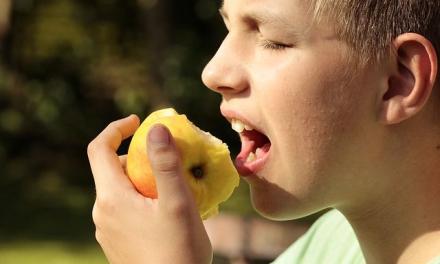Healthy eating and its link to lifestyle is a subject which should be instilled in students at all Key Stages. It’s often difficult to know that the learning they have acquired will be put into practical use due to their family environment, peer pressure and their out of school social life.
However, taking up and maintaining a healthy lifestyle means that marks in tests and exams may improve, interest in subjects can increase and concentrating on the following factors will positively influence your students’ ability to learn and retain information:
- Nutrition
- Exercise
- Sleep
- Social interaction
Whilst most schools have dedicated lifestyle education classes, it’s about more than set lessons every now and again. Lifestyle choices should be embedded into as many subjects as possible to really raise the profile of key healthy lifestyle messages.
Nutrition
Government backed information, nutritional values printed on packaging and the ever present marketing messages that a balanced diet is the way everyone should live should make this an easy topic to really stick in the minds of students of all ages. However, fast foods, easily accessible and low-priced snacks and processed meals often override all the good work which has been put into how to eat healthily.
The key message for any class is that a good diet gives the brain energy to be able to function well. Eat small meals with regular intervals and the levels of blood glucose don’t fluctuate to extremes.
Exercise
Exercise at school is either a love or hate situation for many.
For those who look forward to PE each week, they have a higher probability of carrying on with some kind of sporting activity after they leave school.
For those who aren’t sport-minded however, they are risking the lack of blood flow to the brain and an increase in mood swings and anxiety. This then leads to not being able to focus on their classroom activities.
Lack of exercise will often lead to weight gain and so a greater risk of lifelong medical conditions such as diabetes or heart disease.
Trying to find sporting activities which fit in with the curriculum, school resources and are enjoyed by all the class are pretty much a tall order but perhaps with pupil feedback, those who resist taking part could be persuaded to join an activity such as an after school club if there is enough call for one in a sport which isn’t part of the day to day curriculum.
Sleep
With social media, gaming and the use of smartphones, sleep is something which many pupils now lack and many come to school tired at the beginning of the day and exhausted by the end.
Lack of sleep reduces the ability to focus on tasks and also represses recall skills. It increases stress levels and can instigate depression.
Social interaction
All students will choose their own friends as they travel through their school years and it’s often difficult to influence and to press home the importance of a healthy social outlet. Having a circle of friends who are positive about life and have good ethical values are those who are much more likely to succeed at school.
Unfortunately, there are many distractions for children and young adults alike such as cigarettes, drugs and alcohol use and it’s about the teacher embedding activities around not falling victim to peer pressure and considering the choice of friends which will help and guide them as much as is possible.
In today’s busy world, a healthy lifestyle is difficult for adults to maintain, let alone children. Advertising is constantly pushing products at us to try which may be labelled as ‘healthy’ but in fact are not and our workloads are usually challenging in that there’s not much time to cook from scratch, take a long walk in the park or have an early night on a regular basis. It’s vital though that pupils are given every opportunity to have positive images, messages and learning objectives embedded in their time in school each day so that we can advise, guide and inform on how they can make the best choices for their lives as they grow and for their future ahead.








